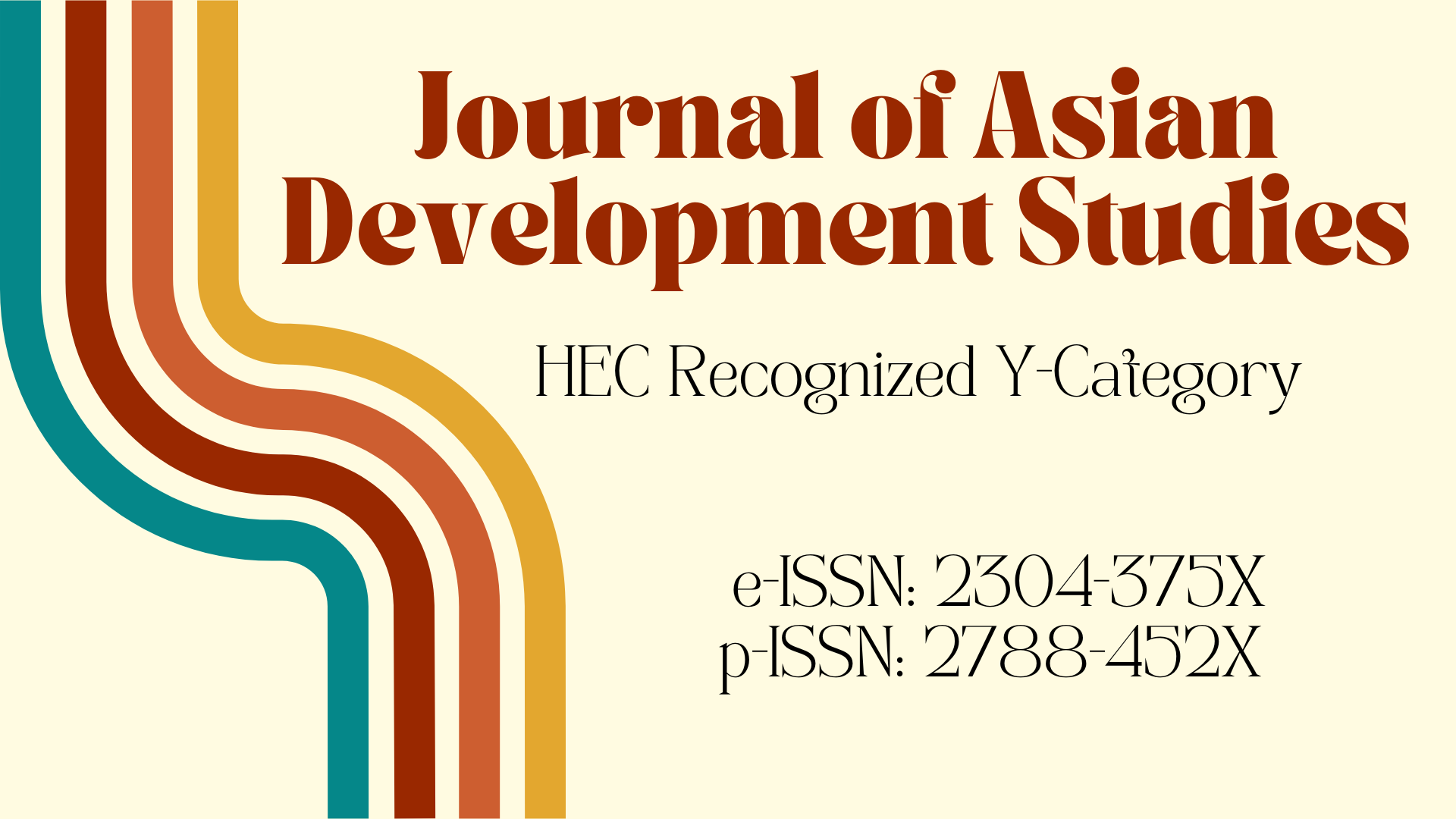Mental Health Outcomes Among Caregivers of Children with Intellectual Disabilities: A Quantitative Study
DOI:
https://doi.org/10.62345/jads.2025.14.1.81Keywords:
Depression, Stress, Anxiety, Caregivers, Intellectual DisabilitiesAbstract
The relationship between parental mental health outcomes, including anxiety, depression, and stress regarding caregivers of children with intellectual disabilities, exists in abundance in academic literature. However, Pakistan faces limited research on this topic precisely when it comes to mental health outcomes, i.e., depression, anxiety, and stress among caregivers of children with intellectual disabilities. Therefore, the objective of this study is to overcome this gap. The research intends to address the current literature gap of knowledge through effects-based policy recommendations and support upcoming academic studies. Caregivers of at least one child with intellectual disabilities below eighteen years old participated in this research through purposive sampling within a cross-sectional correlational design. The correlational analysis depicts a significant association between stress, anxiety, and depression among caregivers of children with intellectual disabilities. Hayes Process 4.1, Model 4 confirmed the positive and significant mediating role of anxiety between stress and depression. The research findings were discussed with relevant literature while proposing social welfare measures through counseling, peer networks, mental health assistance programs combined with educational guidance for children, and advocacy for government-operated intellectual disabilities education facilities. The government needs to establish effective policies that enable ongoing caregiver counseling support together with effective intellectual disability treatment solutions for children.
Downloads
Downloads
Published
Issue
Section
License

This work is licensed under a Creative Commons Attribution 4.0 International License.
License Terms
All articles published by Centre for Research on Poverty and Attitude are made immediately available worldwide under an open access license. This means:
- everyone has free and unlimited access to the full-text of all articles published in Centre for Research on Poverty and Attitude's journals;
- everyone is free to re-use the published material if proper accreditation/citation of the original publication is given.




